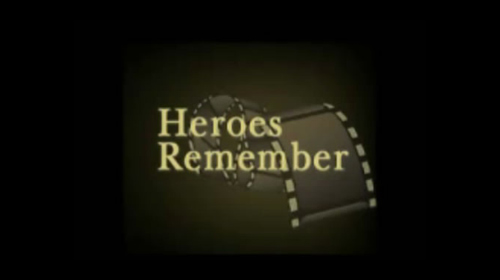Frozen hands
First World War Audio Archive
Frozen hands
Transcript
Hill 62 Memorial Belgium.
and they captured it. They lost some men. We were ready then. We thought the Turks would come after us, but they didn’t. And we, the 26th of November then, October was past and intoCourtrai Memorial Belgium.
November. There come the rain. It didn’t rain first a big lot,Le Quesnel Memorial Belgium.
but after it was raining down it’d come, oh it’d come down in showers and showers and it come down, the real flood. And ourGueudecourt Memorial France.
trenches burst loose and went on down and swept everything down, carting it went, down, down into the, on the... because we wereDury Memorial France.
on side of a hill, like that, see. Turks were up here, and we were down here. Swept all our trenches, everything all out. The 27th it snowed. We were waiting, well some fellas was wrappedMonchy Memorial France.
in blankets, and the 28th it froze. That night, and next day,Passchendaele Memorial Belgium.
it froze. You could skate. You could get on the ice, and you wouldn’t break it. Fellas was going around with frozen feet. Hands, some fellas had their hands froze. Then more fellasMasnières memorial France.
wrapped in blankets going around, so that was alright. I was in poor shape the next day. All of us was. We just doing it, and theBourion Wood Memorial France.
28th they issued straw, dry straw, and some kind of oil.Courcelette Memorial France.
Poor fellas going around with great big legs on them. And we lostBeaumont-Hamel Memorial France.
150 men, that’s froze and sick. Fellas were sick, right. But they wouldn’t... not one died and nobody killed, not one,St. Julien Memorial Belgium.
not one body. Nobody died, but it was a loss to the regiment, because they were... they landed there and they had to go.Canadian National Vimy Memorial France.
Some went to England, more went to Cairo. They went up. Most of them went to England.Description
Mr. Dunn describes the rapid changes in the Turkish weather, leading to the illness and evacuation of many of his regiment.
Ronald Dunn
Ronald Dunn was born in Bonavista, Newfoundland on May 31, 1897. He was a fisherman at the time of his enlistment, December 22, 1914, when he joined the Royal Newfoundland Regiment as a gunner. Mr. Dunn served in England, Egypt, and finally saw action in Gallipoli. He fell ill with dysentery and was sent back to England to convalesce. He was then deployed to France where he participated in the battles at Beaumont-Hamel and the Somme. He sustained two bullet wounds to his right thigh on July 1, 1916, and was given a medical discharge on October 22, 1917. After returning home, he married Elizabeth House, and had three children. Mr. Dunn was the president of the Bonavista Branch of the Great War Veterans’ Association whose membership he helped build to 150 strong. Mr. Dunn died in Golden Heights Manor, Bonavista, on September 8, 1994.
Meta Data
- Medium:
- Video
- Owner:
- Veterans Affairs Canada
- Duration:
- 2:42
- Person Interviewed:
- Ronald Dunn
- War, Conflict or Mission:
- First World War
- Location/Theatre:
- Gallipoli (Turkey)
- Battle/Campaign:
- Gallipoli
- Branch:
- Army
- Units/Ship:
- Royal Newfoundland Regiment
- Rank:
- Gunner
- Occupation:
- Infantryman
Attestation
Related Videos
- Date modified:



